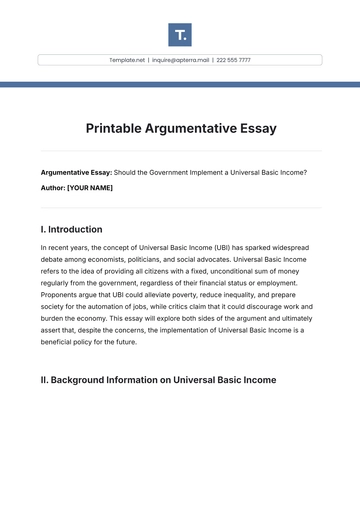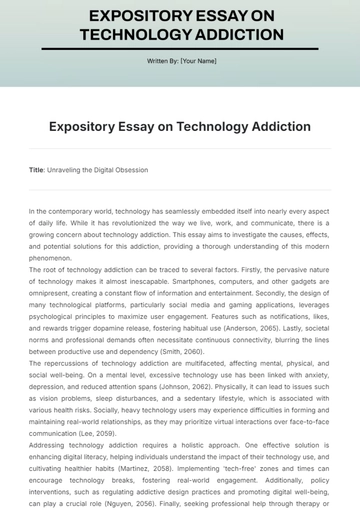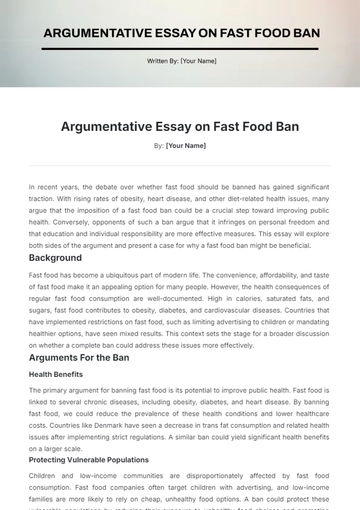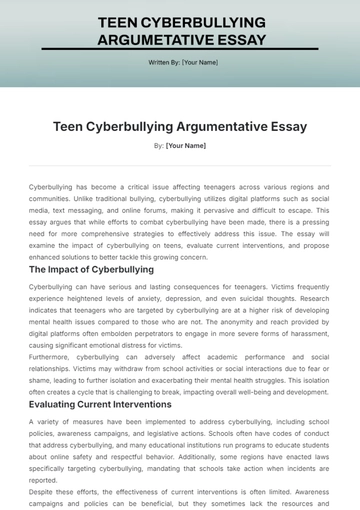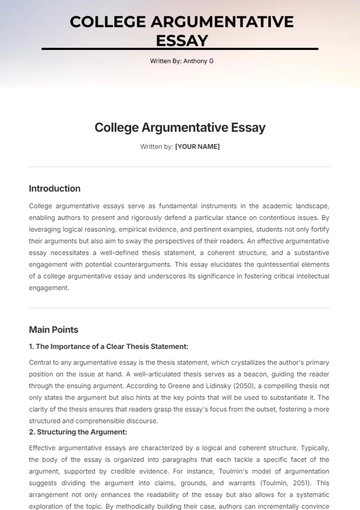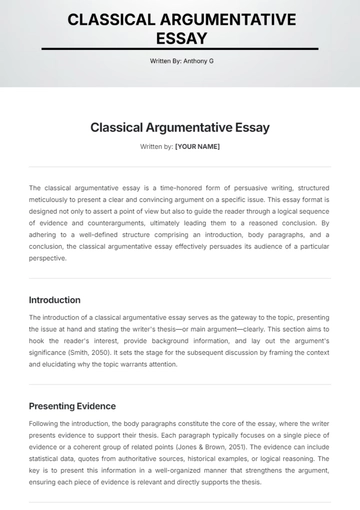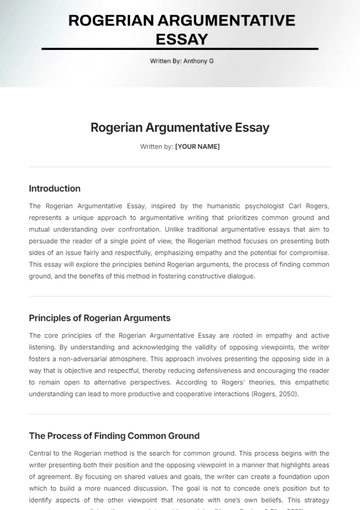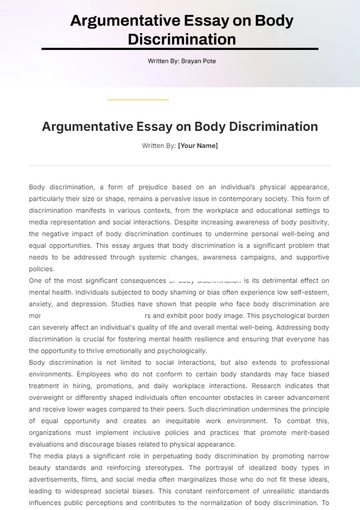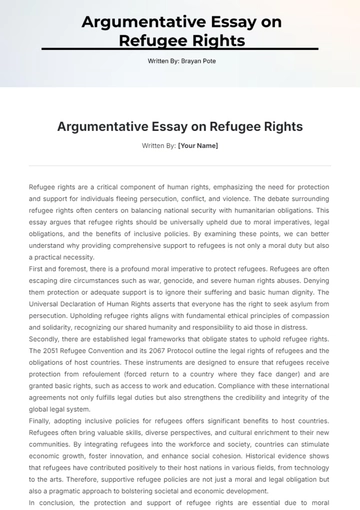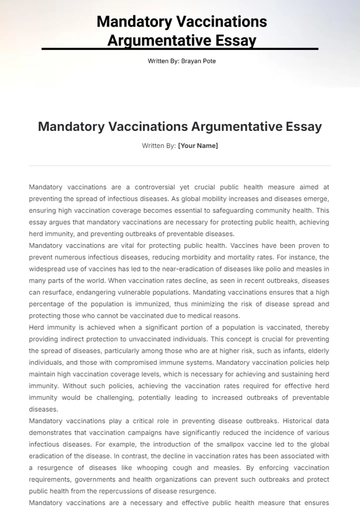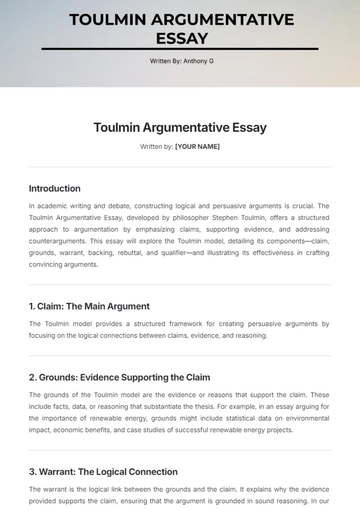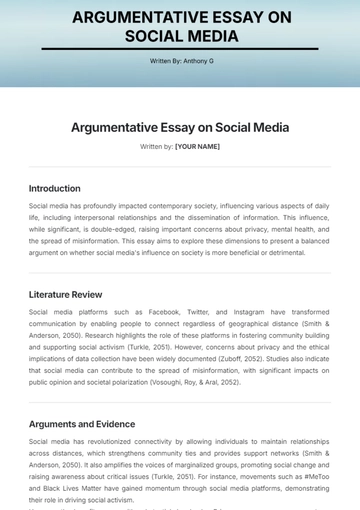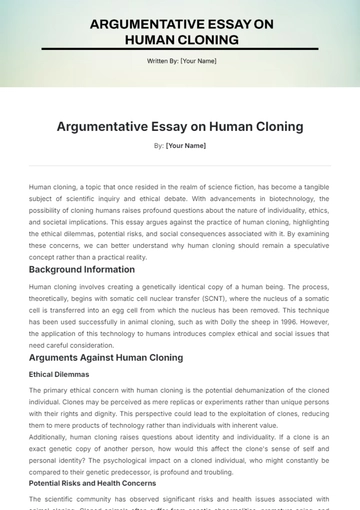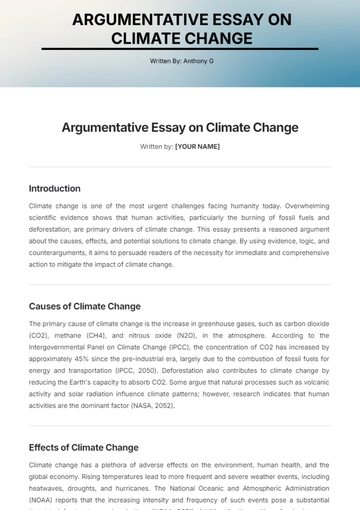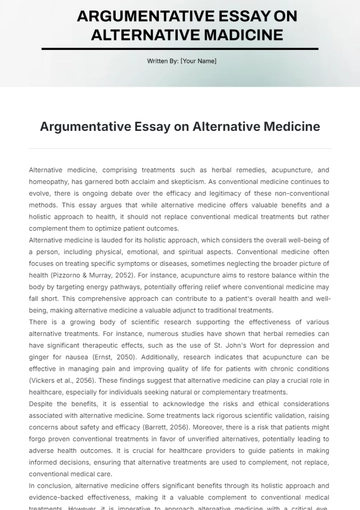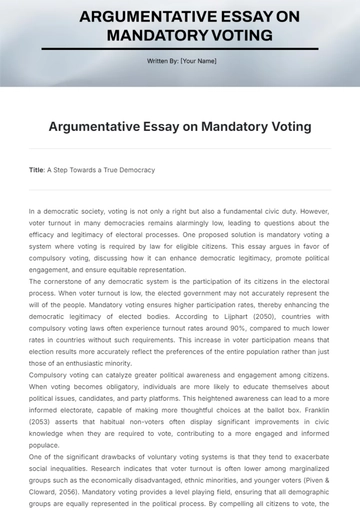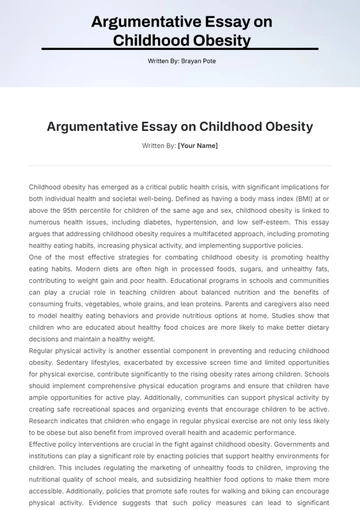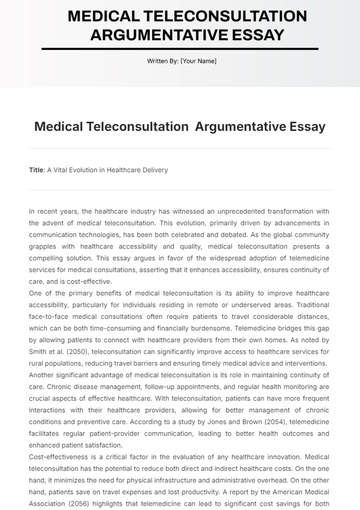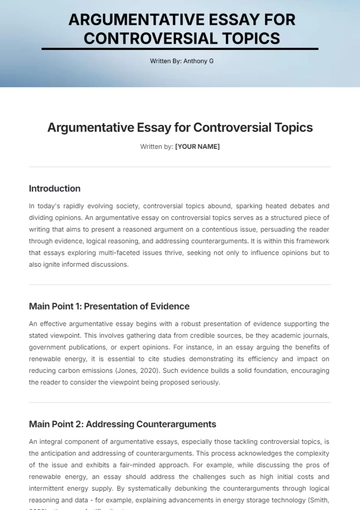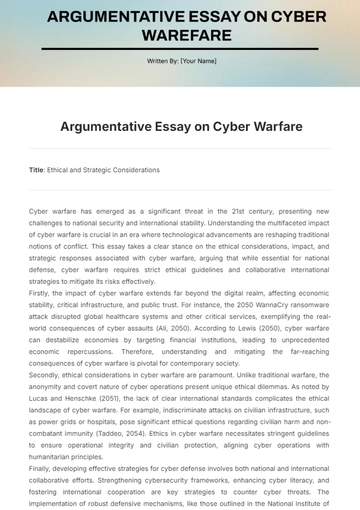Free Argumentative Essay on Childhood Obesity
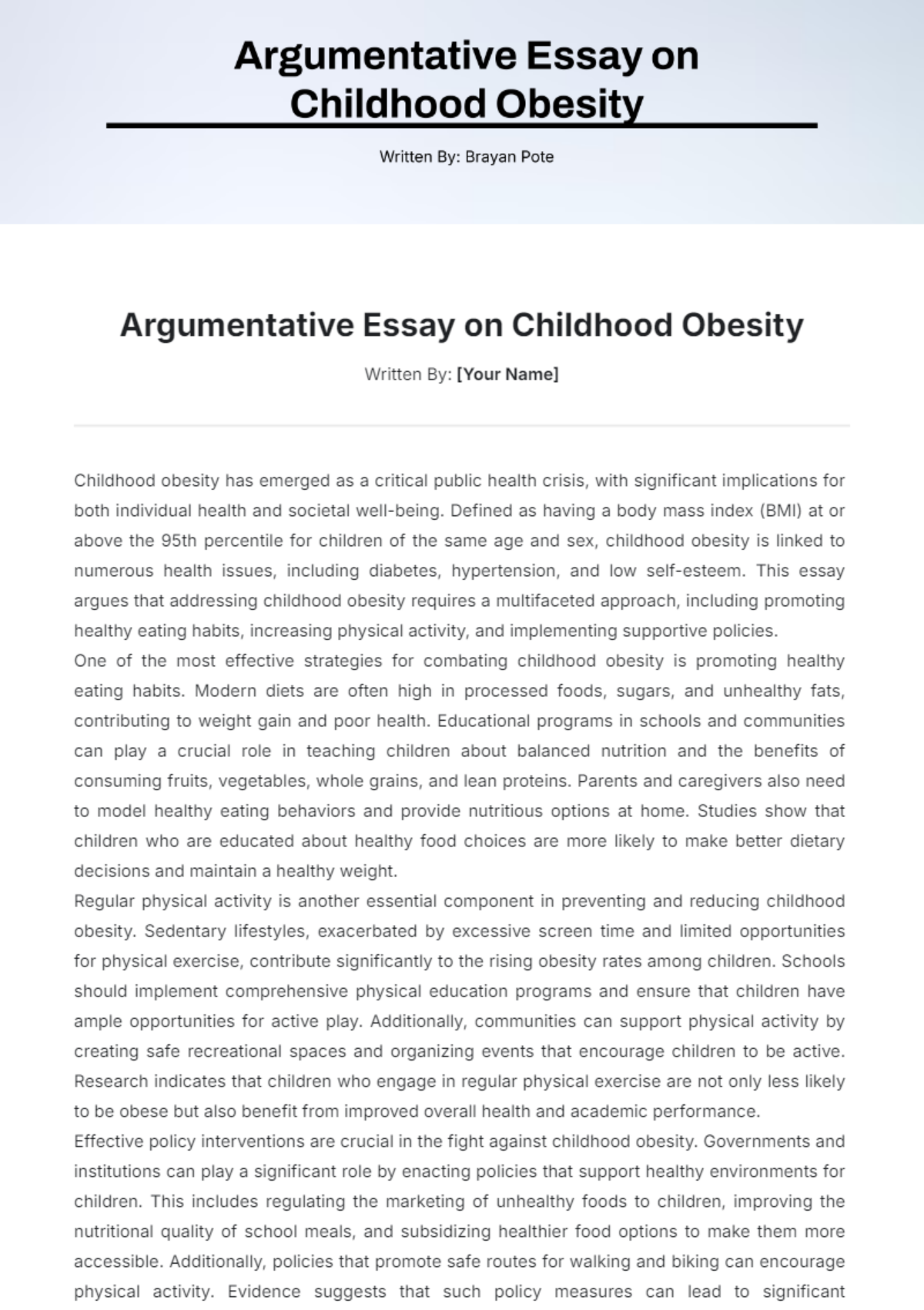
Written By: [Your Name]
Childhood obesity has emerged as a critical public health crisis, with significant implications for both individual health and societal well-being. Defined as having a body mass index (BMI) at or above the 95th percentile for children of the same age and sex, childhood obesity is linked to numerous health issues, including diabetes, hypertension, and low self-esteem. This essay argues that addressing childhood obesity requires a multifaceted approach, including promoting healthy eating habits, increasing physical activity, and implementing supportive policies.
One of the most effective strategies for combating childhood obesity is promoting healthy eating habits. Modern diets are often high in processed foods, sugars, and unhealthy fats, contributing to weight gain and poor health. Educational programs in schools and communities can play a crucial role in teaching children about balanced nutrition and the benefits of consuming fruits, vegetables, whole grains, and lean proteins. Parents and caregivers also need to model healthy eating behaviors and provide nutritious options at home. Studies show that children who are educated about healthy food choices are more likely to make better dietary decisions and maintain a healthy weight.
Regular physical activity is another essential component in preventing and reducing childhood obesity. Sedentary lifestyles, exacerbated by excessive screen time and limited opportunities for physical exercise, contribute significantly to the rising obesity rates among children. Schools should implement comprehensive physical education programs and ensure that children have ample opportunities for active play. Additionally, communities can support physical activity by creating safe recreational spaces and organizing events that encourage children to be active. Research indicates that children who engage in regular physical exercise are not only less likely to be obese but also benefit from improved overall health and academic performance.
Effective policy interventions are crucial in the fight against childhood obesity. Governments and institutions can play a significant role by enacting policies that support healthy environments for children. This includes regulating the marketing of unhealthy foods to children, improving the nutritional quality of school meals, and subsidizing healthier food options to make them more accessible. Additionally, policies that promote safe routes for walking and biking can encourage physical activity. Evidence suggests that such policy measures can lead to significant reductions in obesity rates and improve public health outcomes.
In conclusion, addressing childhood obesity requires a comprehensive strategy that includes promoting healthy eating habits, increasing physical activity, and implementing supportive policies. By focusing on these key areas, society can make meaningful progress in combating this pressing health issue and improving the well-being of future generations. Effective intervention not only helps prevent and reduce obesity but also fosters a healthier, more informed, and active population.
- 100% Customizable, free editor
- Access 1 Million+ Templates, photo’s & graphics
- Download or share as a template
- Click and replace photos, graphics, text, backgrounds
- Resize, crop, AI write & more
- Access advanced editor
Create a compelling argumentative essay with ease using the Argumentative Essay on Childhood Obesity Template from Template.net. This fully customizable, editable template helps structure your arguments effectively. Editable in our Ai Editor Tool, you can personalize the content to fit your unique perspective. Perfect for students and professionals seeking a well-organized, persuasive essay.

